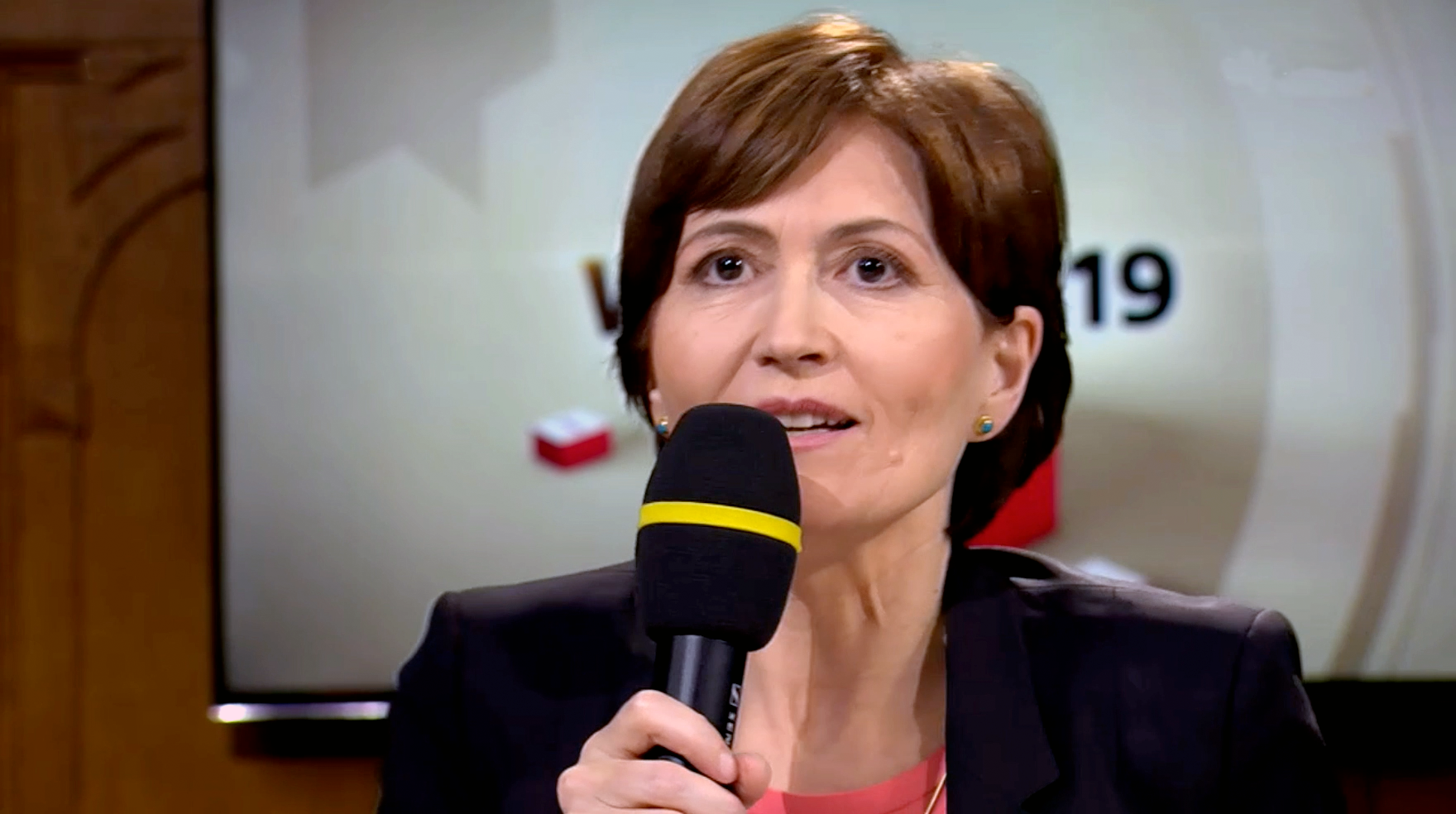
Swiss elections: ‘Green tsunami’ engulfs newspapers

“Green flood”, “fresh, green and feminine wind” – Swiss frontpages and metaphors were only one colour on Monday, the day after eco-parties were clear winners in parliamentary elections. But the papers were less decided on whether the Greens now had an automatic right to a seat in cabinet.
“In Switzerland, the most stable country in the universe, a 6% increase, not counting that of the Liberal Greens, is almost a regime change,” declared the Tribune de Genève.
Sunday’s parliamentary elections saw all political parties lose their share of the vote apart from the Greens (+5.9 percentage points), the Liberal Greens (+3.3) and the Protestant Party (+0.3).
“The mobilisation in favour of the climate of recent months is shaking up the federal parliament and infusing it with a good dose of ecology,” said Le Temps in Lausanne.
“Environmentalists, on both the left and the right, are imposing themselves as never before in institutions renowned for their stability.”
The Tribune de Genève said it had expected a green wave. “To be honest, we thought Sunday night might even be a bit boring. We got that wrong! In Geneva, the wave transformed into a tsunami.”
Identical or similar metaphors appeared in all editorials, with political seismologists at the Tages-Anzeiger in Zurich detecting a “landslide”.
“The left-wing and Liberal Greens benefited from the fact that the climate movement mobilised people more than the fear of too many foreigners or Switzerland’s unresolved relationship with the European Union. And so far, the imminent weakening economic situation hasn’t had an effect on unemployment figures,” it explained.
“So the ecological forces had to simply point to the green in their name and their raison d’être and let themselves be carried along on the Greta wave.”
‘Green is in’
The Tribune de Genève also mentioned the Swedish climate activist in its attempt to explain the result.
“Concern about global warming played a role,” it said. “The issue of the climate, borne by Greta Thunberg, has drawn attention to the existence of other issues closer to our everyday life: pollution, noise, a drive-everywhere policy inherited from the 1950s which many people want to see changed.”
The Geneva paper also pointed to the “constant development” of the local airport and an “invasion of plastics” of Lake Geneva which it said was just as serious as in the oceans.
“The Greens won. This victory now forces them to act,” the Tribune de Genève said. “They have to prove to the public that ecology, beyond speeches that give their authors a good conscience between two easyJet flights, can and will change things in a concrete way in people’s lives. The hardest part begins now.”
“Green has become a lifestyle. Green is in,” noted tabloid Blick. “But there’s green and there’s green: the Greens and the Liberal Greens are united only by the ‘green’ in their names. Otherwise they are as far apart as the Social Democrats and the Radical- Liberals. “
The Greens, Blick said, want to stop climate change with bans and regulations: they’re calling for less flying, veggie-burgers instead of steaks and for more expensive petrol. The Liberal Greens want to stop climate change with technical progress not bans.
“But their voters have a common demand: politicians should take climate change seriously and take measures.”
Cabinet seat?
To that end, will the Green Party claim a place in Switzerland’s seven-seat Federal Council? Traditionally the three-largest parties (Swiss People’s Party, Social Democratic Party and Radical-Liberal Party) get two cabinet seats and the fourth-largest (until now the Christian Democratic Party) gets one.
The Green Party (with 13.2% of the vote) is now the fourth-largest party, having overtaken the Christian Democrats (on 11.4%).
“The Greens are ready for government” was the frontpage headline in the Tages-Anzeiger. “After its historic election victory, the new fourth-largest party belongs in the Federal Council. But be patient: deselecting sitting ministers requires more than a mathematical claim.”
It pointed out that the Christian Democrats and Radical-Liberals dominate in the Senate and therefore their cabinet seats are protected to a certain extent. “An attack on the seat of [Radical-Liberal] Foreign Minister Ignazio Cassis holds the risk of an escalation with unpredictable consequences,” it said.
“But if the distance between the Social Democrats, the Radical-Liberals, the Greens and the Christian Democrats continues to get smaller, Switzerland will have to discuss whether the current cabinet formula can be kept.”
For Le Temps, “Sunday’s result shows that there’s a demand for strong ecological policies, independent of traditional left/right affinities. The environmental cause is everyone’s cause”.
It concluded: “The Federal Council will have to become greener, one way or another, tomorrow or the day after. To respect Swiss voters.”

More
Will the Greens go for a government seat?

In compliance with the JTI standards
More: SWI swissinfo.ch certified by the Journalism Trust Initiative


























You can find an overview of ongoing debates with our journalists here . Please join us!
If you want to start a conversation about a topic raised in this article or want to report factual errors, email us at english@swissinfo.ch.